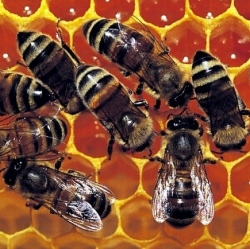
With all the talk lately about how the bacteria in the gut affect health and disease, it’s beginning to seem like they might be in charge of our bodies. But we can have our say, by what we eat. For the first time in humans, researchers have shown that a radical change in diet can quickly shift the microbial makeup in the gut and also alter what those bacteria are doing.
The study takes a first step toward pinpointing how these microbes, collectively called the gut microbiome, might be used to keep us healthy.
"It’s a landmark study," says Rob Knight, a microbial ecologist at the University of Colorado, Boulder, who was not involved with the work. "It changes our view of how rapidly the microbiome can change."
Almost monthly, a new study suggests a link between the bacteria living in the gut and diseases ranging from obesity to autism, at least in mice. Researchers have had trouble, however, pinning down connections between health and these microbes in humans, in part because it’s difficult to make people change their diets for the weeks and months researchers thought it would take to alter the gut microbes and see an effect on health.
But in 2009, Peter Turnbaugh, a microbiologist at Harvard University, demonstrated in mice that a change in diet affected the microbiome in just a day. So he and Lawrence David, now a computational biologist at Duke University in Durham, North Carolina, decided to see if diet could have an immediate effect in humans as well.
They recruited 10 volunteers to eat only what the researchers provided for 5 days. Half ate only animal products—bacon and eggs for breakfast; spareribs and brisket for lunch; salami and a selection of cheeses for dinner, with pork rinds and string cheese as snacks. The other half consumed a high-fiber, plants-only diet with grains, beans, fruits, and vegetables. For the several days prior to and after the experiment, the volunteers recorded what they ate so the researchers could assess how food intake differed.
